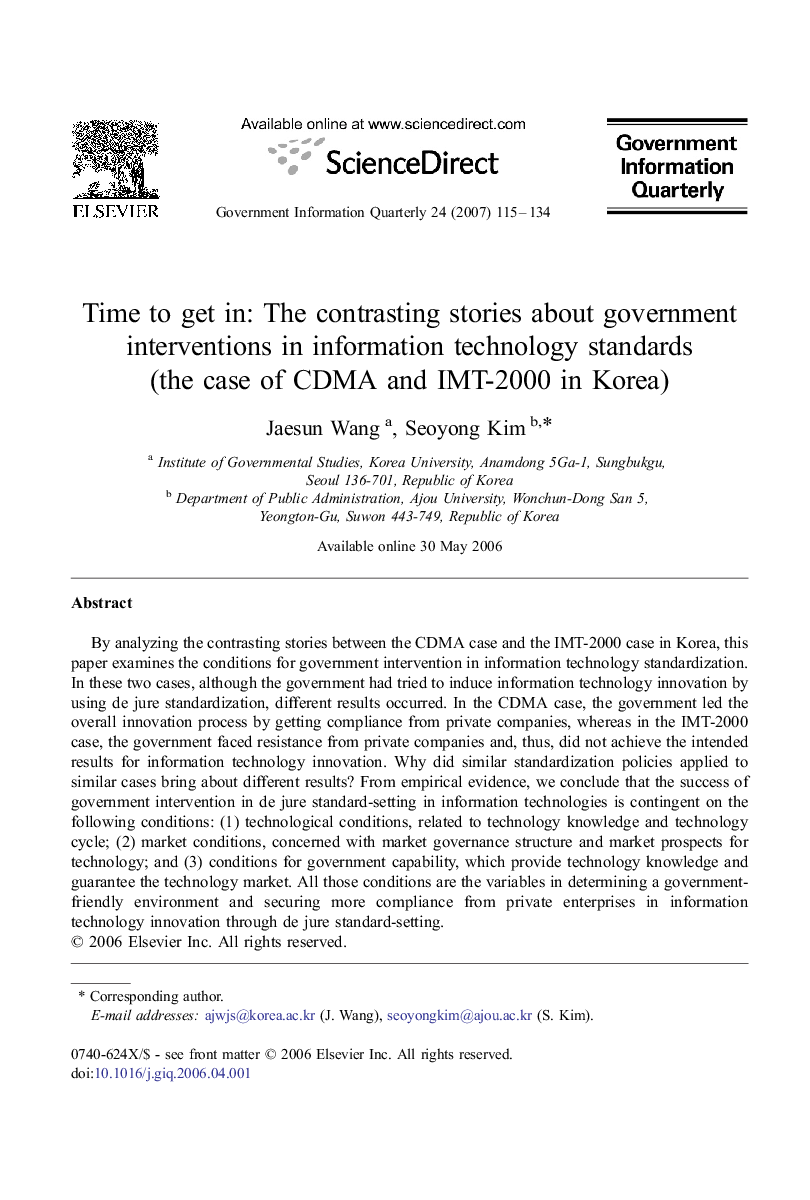| Article ID | Journal | Published Year | Pages | File Type |
|---|---|---|---|---|
| 1025101 | Government Information Quarterly | 2007 | 20 Pages |
By analyzing the contrasting stories between the CDMA case and the IMT-2000 case in Korea, this paper examines the conditions for government intervention in information technology standardization. In these two cases, although the government had tried to induce information technology innovation by using de jure standardization, different results occurred. In the CDMA case, the government led the overall innovation process by getting compliance from private companies, whereas in the IMT-2000 case, the government faced resistance from private companies and, thus, did not achieve the intended results for information technology innovation. Why did similar standardization policies applied to similar cases bring about different results? From empirical evidence, we conclude that the success of government intervention in de jure standard-setting in information technologies is contingent on the following conditions: (1) technological conditions, related to technology knowledge and technology cycle; (2) market conditions, concerned with market governance structure and market prospects for technology; and (3) conditions for government capability, which provide technology knowledge and guarantee the technology market. All those conditions are the variables in determining a government-friendly environment and securing more compliance from private enterprises in information technology innovation through de jure standard-setting.
